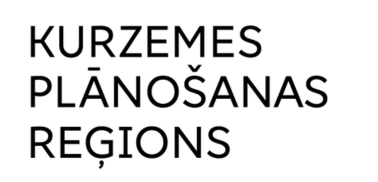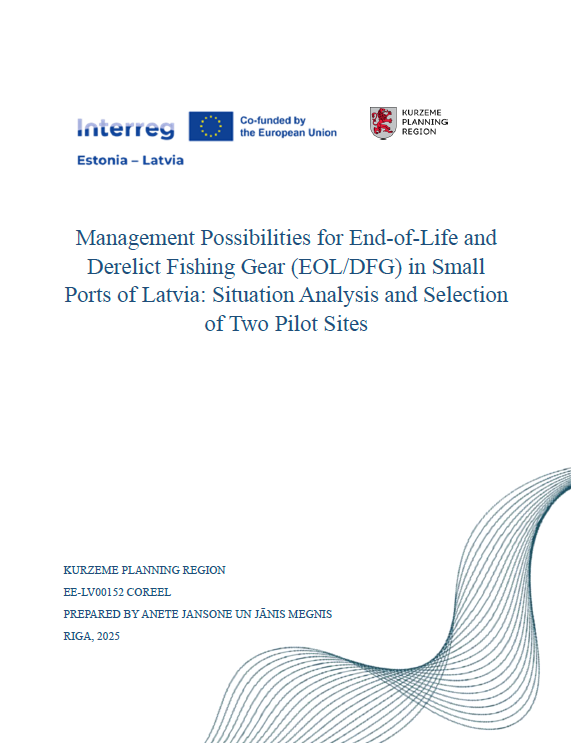EE-LV00152
Project title: Collection and Recycling of End-of-Life and Abandoned Fishing Gear
Project acronym: COREEL
Project objective:
To improve the environmental condition of cross-border water bodies in the Estonia–Latvia region by removing abandoned fishing gear (DFG) from the water; to establish modern and suitable collection facilities for end-of-life and abandoned fishing gear at four locations within the Estonia–Latvia Programme area; and to promote responsible recycling of used fishing gear.
Target groups:
Fishermen, port operators, fishing gear suppliers, municipalities, and sectoral agencies within the Estonia–Latvia cross-border region.
Planned project results in Latvia:
- Establishment of collection and recycling points;
- Creation of a map of end-of-life and abandoned fishing gear (DFG) “hotspots”;
- Development of guidelines for DFG detection and retrieval operations;
- Testing and implementation of technologies for locating and removing DFG;
- Increased public awareness and improved knowledge.
Project partners:
- Keep the Estonian Sea Tidy – Lead partner
- Kurzeme Planning Region
- Estonian Divers Association
- Latvian Institute of Hydroecology
Project budget: €1,225,671.25, including €980,537.00 from the European Regional Development Fund (ERDF).
Project duration: 40 months – from 1 August 2024 to 30 November 2027.
Project documents and resources
The accumulation of end-of-life (EOL) and derelict fishing gear (DFG) in Latvia’s coastal ports poses a significant environmental pollution risk and hinders the sustainable management of marine resources. This issue affects both marine ecosystems and the development prospects of the fisheries sector, highlighting the need for an effective and modern management approach.
To reduce the negative environmental impact and at the same time promote the implementation of circular economy principles in fisheries, the COREEL project carried out an assessment of the collection, storage, and processing options for fishing gear in Latvia’s small ports. The aim of the assessment was to analyse the current situation and identify the most suitable locations for the implementation of a pilot project, which would serve as a basis for establishing a sustainable system along the entire coastline.
Evaluation Approach and Methodology
The assessment applied a multifactor analysis, taking into account the following aspects:
- Fishing intensity in the ports
- Available infrastructure for managing fishing gear
- Logistical options and accessibility
- Involvement and readiness of local institutions, port authorities, and communities to cooperate
In addition, on-site interviews were conducted with fishermen and port representatives, as well as visual inspections of port areas, to gain a comprehensive understanding of the current situation and specific needs.
Results: Roja and Salacgrīva (Kuiviži) Ports – the Most Suitable Pilot Sites
The assessment results clearly indicate that the Roja and Salacgrīva (Kuiviži) ports are the most suitable locations for launching the pilot project. Several factors support this conclusion:
- High fishing activity, demonstrating a practical need for an effective fishing gear management system;
- Available space and infrastructure, allowing port areas to be adapted for new solutions;
- Strong interest from fishermen and port representatives, reflecting local support and high collaboration potential.



